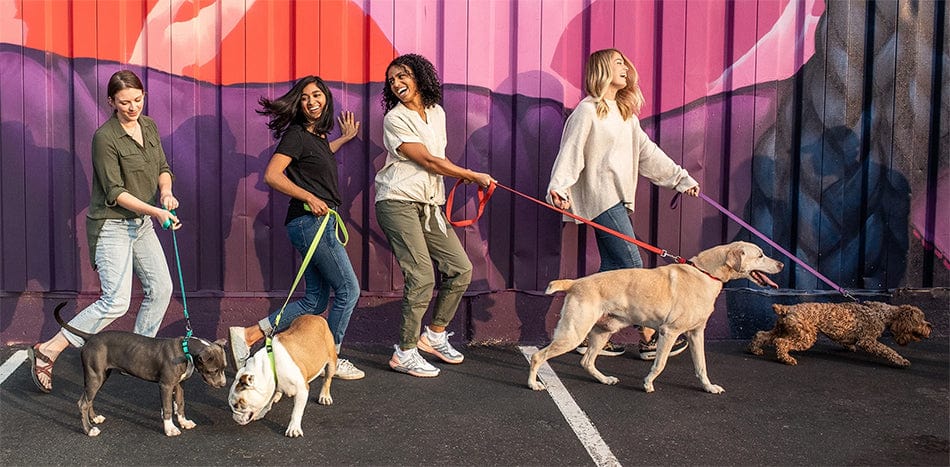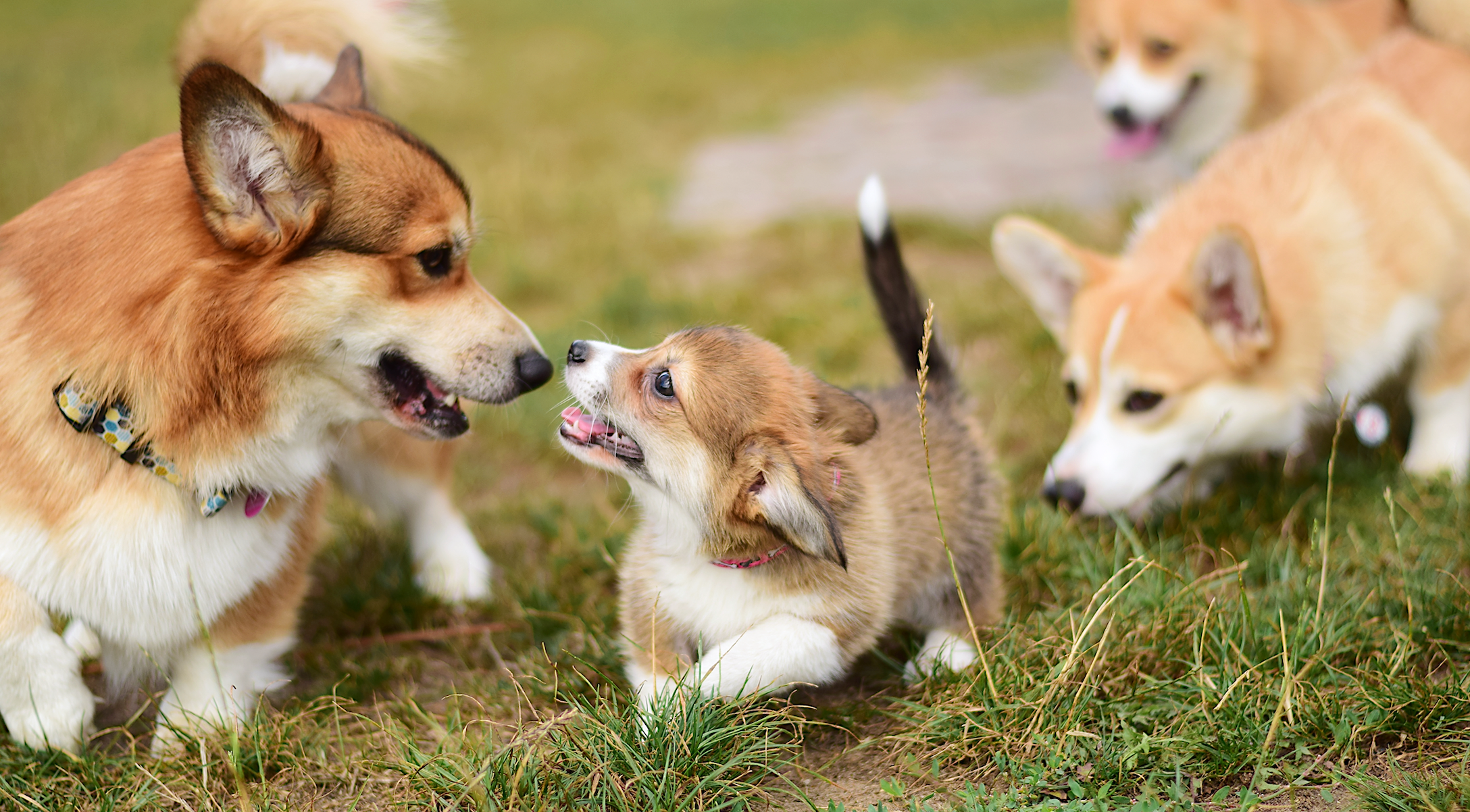Your cart is empty. Let's fix that!


Welcoming a new puppy home is THE BEST. And the best time to tackle puppy socialization is when they’re 8 to 12 weeks of age. How can you introduce your puppy to the world in a safe and nurturing way?
You’ve picked up toys, puppy food, and a baby gate to keep your newest little mess-maker contained during house training. Now it’s time for one of the most important elements of socializing your pup: meeting other dogs. Finding canine BFFs when they’re young will help your pup to bond with other dogs for the rest of their life. But it’s also important for your dog’s health to be cautious with these introductions until your puppy is fully vaccinated.
Puppies don’t finish their full schedule of vaccinations until they’re at least 16 weeks old. Before that point, it’s not safe to take your pup to any uncontrolled environments with lots of dog traffic, such as the dog park. They can come into contact with diseases from contact with other dogs and even through their pee or poop. Also, the chaos of the dog park can be scary for puppies.
On the other hand, experts from the American Veterinary Society of Animal Behavior agree that you should socialize puppies during this time in ways that are safe to help improve their socialization and mental health for the rest of their lives. So how can you expose your puppy to other dogs safely during that key socialization window before 12 weeks?
One of the easiest ways to help puppies develop play skills and manners is with puppy classes! A safe, clean environment with other young puppies will get them used to the sights and sounds of other dogs. Here, puppies learn to play with other pups their age instead of adult dogs who might play a little too rough for them—plus, they’ll get some dog training from an expert at the same time.
When it comes to introducing your puppy to older dogs, it’s best to do this in a safe and supervised environment like your home or backyard. There are some important questions to ask their owner to determine if they’re the right playmate for your puppy:
Gentle dogs with a good temperament can be positive role models and teachers for your puppy and help them create lifelong positive associations with making new canine friends.
It’s important to introduce your puppy to a wide variety of people from a young age. This will teach your dog to see all kinds of people as friends—and to make sure you don’t discover two years down the road that your dog is afraid of everyone with a beard. Try to expose your dog to a variety of:
Make sure your puppy and any potential new human friends are happy to meet each other to help keep interactions positive.
This is just the start of socialization! You and your new BFF will be busy taking car rides, meeting the vacuum cleaner, and learning that the vet is a friend. Positive reinforcement training is the key! Keep all these new experiences short and sweet, provide plenty of treats and praise, and watch your dog’s body language and stress levels to make sure they’re happy campers who will go to sleep thinking about what a great day they had.
As your puppy grows, you’ll have a companion who’s ready to take on the world by your side—good work, pet parent.